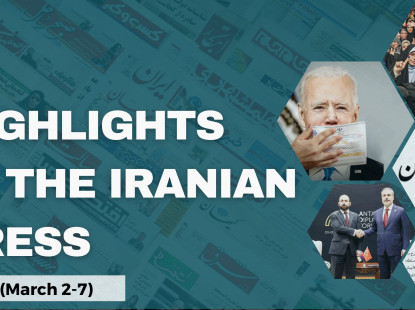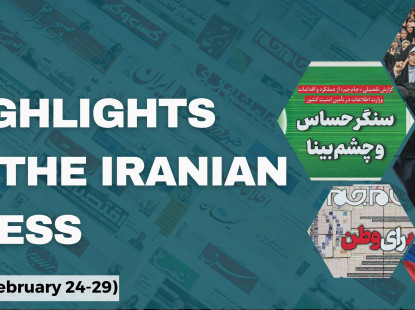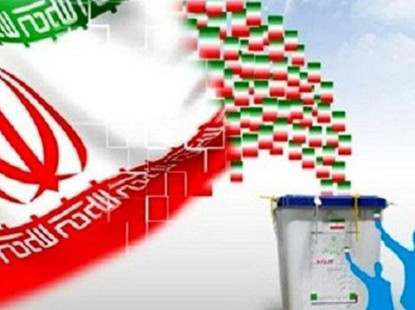Iran-Saudi Tension and the Double Entendre
In early September, Javad Zarif, the foreign minister of the Islamic Republic of Iran, penned an op-ed for The New York Times where he denounced Wahhabis for their alleged ‘fanaticism from the Dark Ages sold as a bright vision for the 21st century’. He further attacked the princes in Riyadh for having been ‘desperate to revive the regional status quo of the days of Saddam Hussein’s rule in Iraq’ allegedly to counter ‘the so-called Iranian threat’. Mr. Zarif then made the intimidating, if indirect, reminder that ‘there is only one problem; Mr. Hussein is long dead, and the clock cannot be turned back’. His piece, most rebarbative for the Saudis, was responded equally harshly by Adel Al-Jubeir, Mr. Zarif’s Saudi counterpart, in a Wall Street Journal op-ed a few days later. Mr. Jubeir condemned Iran for being ‘the leading state-sponsor of terrorism’ since 1979 and added that ‘Iran cannot talk about fighting extremism while its leaders, Quds Force and Revolutionary Guards continue to fund, train, arm and facilitate acts of terrorism’. Leaving aside the significant global and regional ramifications of this obstreperous intergovernmental strain between the two countries and the resultant daunting rhetoric it provokes, perhaps a specific dimension of the anti-Wahhabi and anti-Salafi discourse, recently exceptionally mainstream among some senior Iranian officials, merits special attention; the double entendre.
Mr. Zarif was obviously careful to make a distinction between Sunnism and Wahhabism, certainly not to disquiet the Sunnite Muslims inside and outside Iran. Further, Ali Khamenei, Iran’s Supreme Leader, touched upon this point on 20 September 2016, on the occasion of Eid Al-Ghadir, the anniversary of the day when the Shiite Muslims believe Ali was appointed as the Muslims’ leader after the Prophet Muhammad. There he declared insulting the Sunnite figures as damnable for, he warned, "inciting emotions among other branches of Islam, in the name of Shi’ism, is actually the approach of 'British Shi'ism'”. Yet, despite the valuableness of such statements, not only do the anti-Sunnite practices among Shiites continue to exist, but also the growing tension between Iran and Saudi Arabia, as well as Iran’s use of ISIS as a political and discursive tool to further its regional influence, and at times carry a sectarian dimension. But this is a new way of sectarianism; the McCarthyist way!
Amidst the witch hunts against communists which he championed the American Republican Senator Joseph McCarthy who made a distinction between "card-carrying Communists" and what he called "fellow travelers". While a card-carrying Communist was considered a bona fide member of the communist party, a fellow traveler only sympathized with the ideology. Likewise, some top Iranians appear to be mesmerized by the hypnotic effects of terms such as takfiri, jihadi or Wahhabi, as they are often so irresponsibly utilized that it is difficult to discern what is exactly meant by each. These are often used as umbrella concepts to encompass a vast array of ideas. A report entitled “Discovering the Extreme Groups: Modern-day Salafism” is a good example of this. The report identifies confrontational, Deobandi, moderate and takfiri as the four branches of Salafism. Such groups as al-Qaida, al-Shabab and ISIS fall in the first category which constitutes eight percent of Salafism and whose objective is to seize power through armed struggle. Taliban, Tablighi Jamaat, or Society for spreading the faith, Jundallah and their likes in the Indian Subcontinent, as well as in southeastern Iran, represent the second group which puts excessive emphasis on the outer aspects of Islam and claim a monopoly as representative of the true faith. The moderate group is the third Salafi branch whose founding father is Hasan al-Banna, and is active in a wide spectrum of countries, from Turkey to Tunisia and from Yemen to Qatar. According to the report, groups such as ‘Development and Justice, ‘Freedom and Justice’ and ‘al-Nour Party’ fall into this category whose objective is to capture and increase political power. The takfiri Salafism, which tends to accuse other Muslims of apostasy, basically refers to the Saudi Arabian ideology that, thus claims the report, permits spilling the blood of other Muslims and whose objective is to promote Wahhabism through cultural and financial means. Moreover, having listed the various ways of Salafism, the report then delves into the commonalities of the four branches which are: extreme Islamism, confrontation based on rugged demeanor, lack of positive thinking, and the influence of Arabia and the US. It goes without saying that with such an ambiguous framing of Salafism, one can, instantaneously, easily label others as Salafi. In other words, considering the above classification of Salafism, one can at least be called a ‘fellow traveler’ Salafi if no membership card is found on him!
Also, Iran has been trying to give the impression that it is the leading, if not the only, Middle Eastern country waging an uncompromising fight against the ISIS terrorist group. It is hardly an exaggeration to say that it entirely grounds its multidimensional regional policy on the fight against this terrorist organization and thus legitimizes its position both in the international community and to the public opinion at home. Yet, there is more to this otherwise understandable political rhetoric. Since the spread of ISIS throughout the region, we frequently hear of a high-ranking Iranian official or a media report from Iran trying to associate Turkey with ISIS. The recent accusations by Mohsen Rezaei, the secretary of Iran’s Expediency Discernment Council and former chief of the Islamic Revolutionary Guard Corps, against Turkey’s President, Recep Tayyip Erdoğan, is a fresh manifestation of this flawed way of thinking. President Erdoğan’s call for stopping the bloodshed and averting the sectarian conflict in the region was responded by Mr. Rezaei’s unsubstantiated accusation against Turkey for supporting ISIS. Leaving aside Turkey’s declared fight against the ISIS terrorist group, of which the country has suffered immensely, it is obvious that Mr. Rezaei’s words serve none but the most errant of purposes.
Obviously, Iranians inside the country have more urgent priorities than fuelling new conflicts in the region. Their future, and that of their families, is paramount. The nuclear deal of 2015 was welcomed as a major step in breaking Iran’s international isolation and they would certainly reject any regional isolation. Besides, sectarianism, discrimination, and irresponsible accusations make nothing better for the region. Mr. Zarif spoke with wisdom when he invited “to put aside the rhetoric of blame and fear and join hands with the rest of the community of nations to eliminate the scourge of terrorism and violence that threatens us all”.











